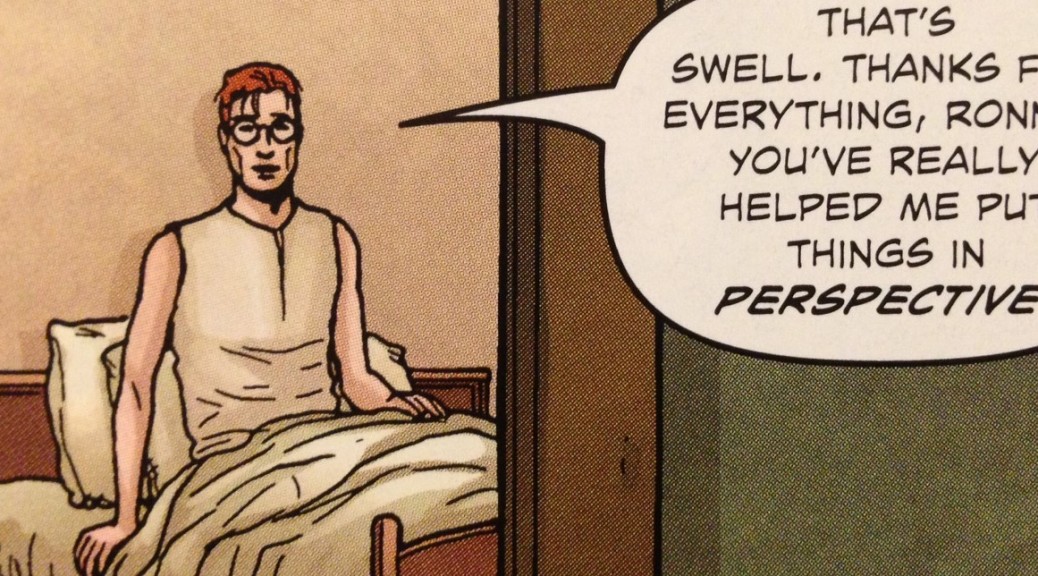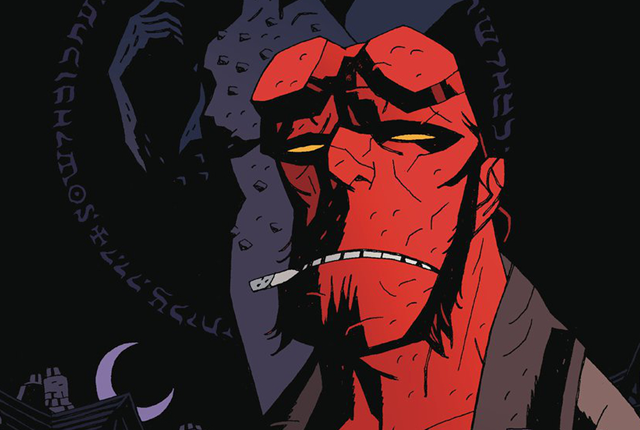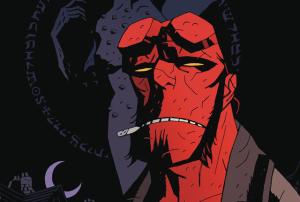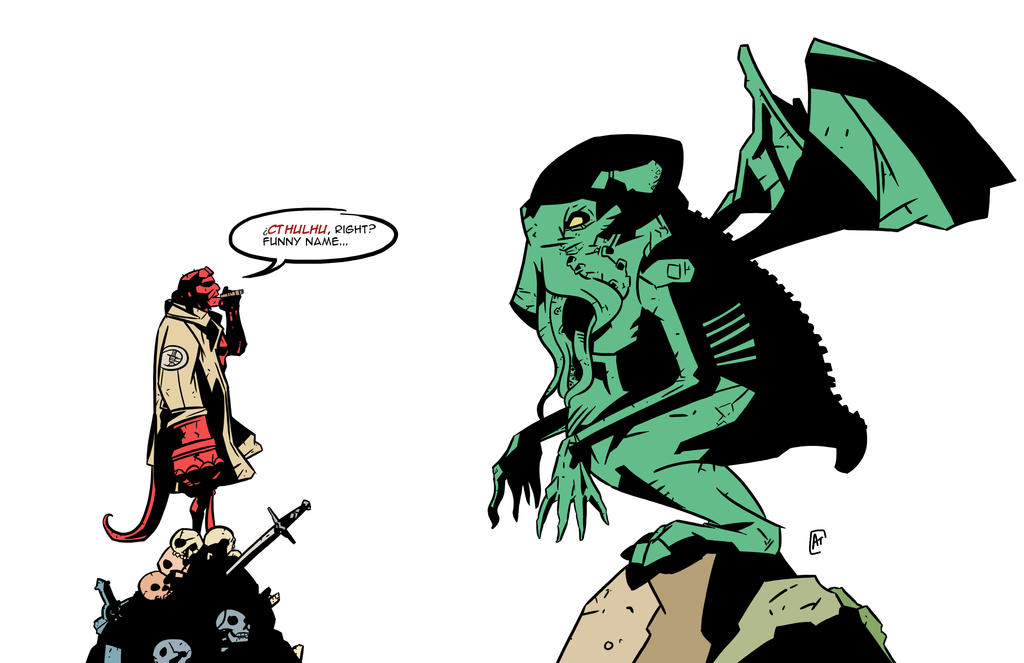(Facts in the Case of Providence is a collaborative blog by Joe Linton, Alexx Kay, and Bobby Derie dedicated to annotating Alan Moore and Jacen Burrows’s Providence and Neonomicon from Avatar Press. In what follows, Derie gives S&S readers a sense of the works’ layers and linkages to the study of religion.)
The seeker of truth for its own sake is chained to no conventional system, but always shapes his philosophical opinions upon what seems to him the best evidence at hand. Changes, therefore, are constantly possible; and occur whenever new or revalued evidence makes them logical.
– H. P. Lovecraft, “A Confession of Unfaith” (1922) [Lovecraft 2010, 1]
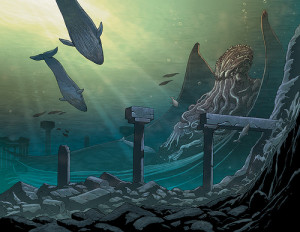 Howard Phillips Lovecraft (1890-1937) was an atheist materialist, who in light of reflection and the discoveries of science dismissed the orthodoxies and mythologies of the world’s religions, saying such beliefs “could not possibly arise from a close and impartial survey of nature and the cosmos today[.]” (Lovecraft 2010, 89) While he may have lacked belief in God or the supernatural, Lovecraft at least appreciated the importance of the religious feeling, as he expressed in his seminal essay “Supernatural Horror in Literature” (1927):
Howard Phillips Lovecraft (1890-1937) was an atheist materialist, who in light of reflection and the discoveries of science dismissed the orthodoxies and mythologies of the world’s religions, saying such beliefs “could not possibly arise from a close and impartial survey of nature and the cosmos today[.]” (Lovecraft 2010, 89) While he may have lacked belief in God or the supernatural, Lovecraft at least appreciated the importance of the religious feeling, as he expressed in his seminal essay “Supernatural Horror in Literature” (1927):
Because we remember pain and the menace of death more vividly than pleasure, and because our feelings toward the beneficent aspects of the unknown have from the first been captured and formalised by conventional religious rituals, it has fallen to the lot of the darker and more maleficent side of cosmic mystery to figure chiefly in our popular supernatural folklore.
Lovecraft’s own mythos, inspired by that of Lord Dunsany and Arthur Machen, was filled with indifferent, alien entities that satisfied both his materialism and his cosmicism; these were not airy spiritual beings, but creatures of matter—yet possessed too of tremendous capabilities and knowledge, and were subjects of worship by strange cults, some of which predated humanity, and their scriptures were terrible tomes like the Necronomicon, Unaussprechlichen Kulten, Cultes des Goules, and Livre d’Eibon.
Alan Moore (1953-) is a ceremonial magician who works in a pantheistic cosmology, taking the ancient Roman god Glycon as his primary deity. (Doyle-White 29) Moore’s approach to Lovecraft is flavored by his interest in the occult, and by Moore’s careful study of the critical literature that has developed surrounding Lovecraft’s life and writings. (Derie) In part, this is an outgrowth of Moore’s continual interest in the blurring between fiction and reality, as expressed in works like From Hell by Moore and Eddie Campbell.
Continue reading Sacred Texts: Lovecraft, Alan Moore, and Religion in PROVIDENCE →
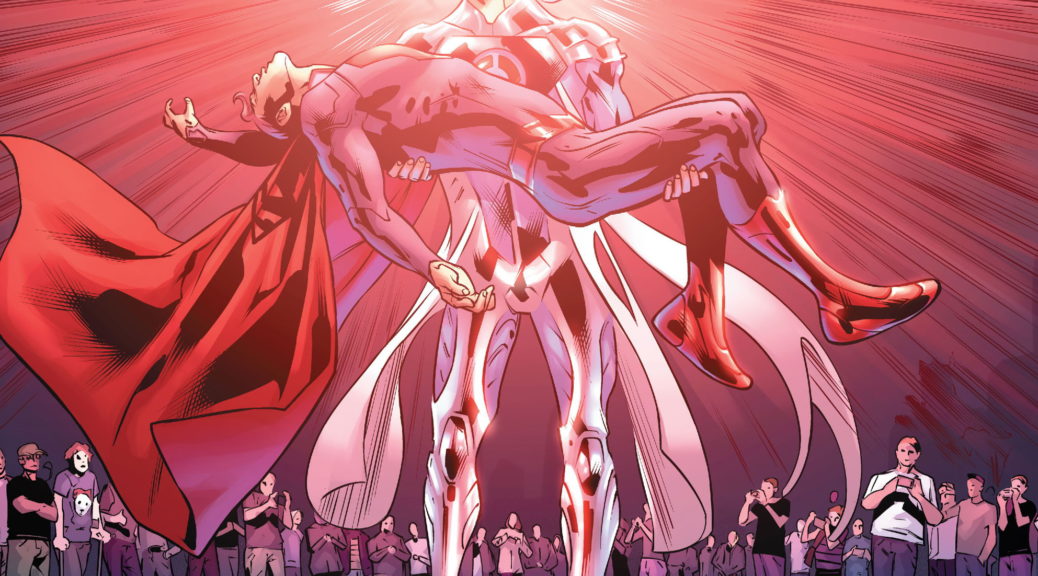
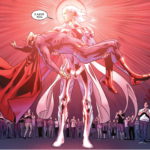 A multitude of issues pertaining to religion and comics have filled the media and the Sacred and Sequential site in 2016: Islamophobia, superhero gods, idolatry and blasphemy, proselytizing, memorializing. Below are the five most-read articles from our pages; in toto, they all seem to orbit concerns of the medium’s essential alignment with either Christianity, Judaism, or the far, far more esoteric. Is there battle for the “soul” of comics amassing?
A multitude of issues pertaining to religion and comics have filled the media and the Sacred and Sequential site in 2016: Islamophobia, superhero gods, idolatry and blasphemy, proselytizing, memorializing. Below are the five most-read articles from our pages; in toto, they all seem to orbit concerns of the medium’s essential alignment with either Christianity, Judaism, or the far, far more esoteric. Is there battle for the “soul” of comics amassing?